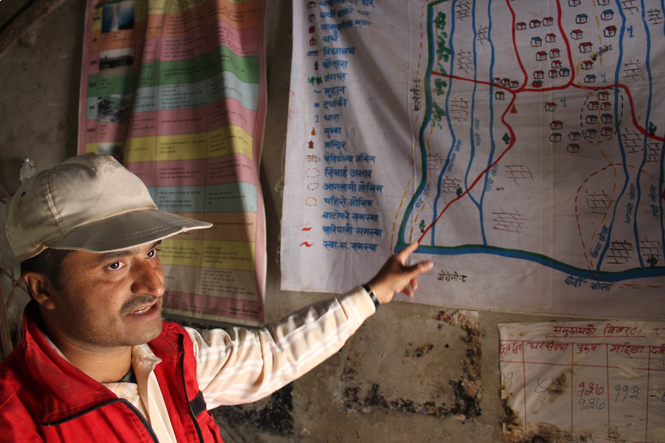
With weather-related hazards increasing in frequency and intensity, EWEA must be supported by disaster laws, policies, and plans.
Isabelle Granger, IFRC's Lead for Disaster Law and the Auxiliary Role says EWEA starts with legal and policy frameworks.
"Laws, policies and plans need to detail what the actions are, when they happen, and who is responsible for them. For example, mandating forecasting of hazards, early warnings for the population, defining roles and responsibilities, coordination mechanisms, and information sharing between the broad range of stakeholders involved.
“As we gather for COP 28 to discuss how we respond to climate change, it's imperative to recognize that early warning early action is an important way to proactively build resilience. It's a strategic investment in the well-being of our communities. By embedding EWEA into our legal frameworks, we not only empower governments but also foster a culture of preparedness among our citizens."
Beyond outlining roles and responsibilities, legal provisions for EWEA can enable governments to allocate resources for key measures, such as establishing early warning systems, pre-positioning emergency supplies, or ensuring emergency response funds are available. Critically, legal provisions streamline decision-making processes during emergencies, ultimately saving lives.
Laws, policies and plans for EWEA must be designed to protect at-risk and marginalised groups – such as women, older people, the young, the displaced and people with disabilities - to ensure they receive the information and support needed to take early action. For example, domestic laws, policies and plans should provide evacuation assistance for people unable to evacuate independently.
Laws and policies for EWEA must be people-centred and inclusive, developed with the end-users in mind. Standard procedures should address how warnings will be disseminated - for example, through a wide range of communications channels, mediums and languages. Standard procedures should also identify dissemination methods for populations that are hard to reach.
IFRC Disaster Law supports governments in legally mandating and defining roles and responsibilities for all aspects of managing disasters, including EWEA. IFRC’s Disaster Risk Governance Guidelines are a benchmarking tool that can be used to support the development of legal frameworks that provide the foundation for an effective multi-hazard early warning system and early action.
The UN’s Early Warning for All Initiative EW4ALL aims to ensure every person on earth is protected from hazardous weather, water, or climate events through life-saving early warning systems by the end of 2027. It includes a commitment to strengthening law and policy for early action, which IFRC Disaster Law will work alongside National Societies and governments to achieve.
To learn more about how to integrate EWEA into law, click here for our snapshot. For a case study from Asia Pacific click here and for Africa, click here.